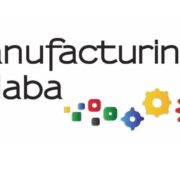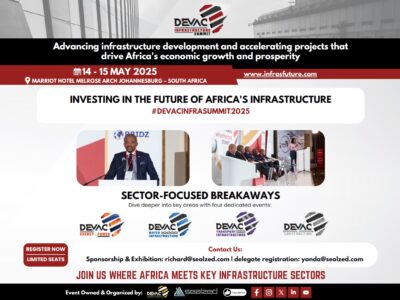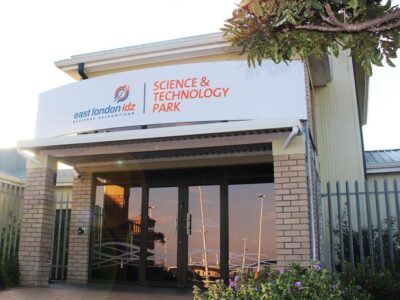

In the previous two articles, we established that uncertainty and instability is the “new normal” and that we require different leadership and decision-making approaches to effectively navigate the complexity. In this final article, we will focus on providing practical suggestions to enable leaders to maintain momentum in these times. Here are some thoughts on maintaining momentum.
Cultivate fast feedback loops
Risk and opportunity emerge on the edges of our organisations. We cannot afford not to have diverse and fast feedback loops in place. We cannot adapt effectively if we don’t know what we are being adaptive to.
Delegate what you can (don’t waste your time and decision-making energy on complicated and unclear decisions)
We all have limited energy for making decisions. Decision-fatigue is real. Now is not the time to micro-manage and spend time making decisions that are within the expertise or mandate of others to make. Focus your efforts where it matters most, managing constraints in the complex and chaotic domains.
Find ways to step off the dancefloor and onto the balcony (slow down)
Ron Heifetz (5) writes about getting a balcony perspective. When we are in the middle of the dancefloor, things are frenetic. We are focusing on details, and immediate decisions. We lose sight of bigger patterns. It is easy to get sucked into the franticness of everyday operations. You have to take time out, take a step back and get a perspective of broader patterns that are playing out or emerging.
If you don’t, you could be heading straight for a cliff and not see it coming before it is too late. Or the opportunity of a lifetime may pass you by because you weren’t looking.
Practice self-care and don’t go it alone
Leaders are forced to make impossible trade-offs in their worlds. This is a very tough intellectual process with a deep emotional impact and undertone. These trade-offs are made on “external things” such as “do I keep staff (and not retrench)” or “do I keep costs high and wipe out dividends that support pensions?”
The psychological experience of these kind of trade-offs is called a double bind: “I am damned if I do and I am damned if I don’t…” The experience is that as a leader, I must execute a plan that feels like a lose-lose option. Very few things are as “rough” as being in a double bind. It is jarring. It leads to loneliness, exhaustion, confusion, inertia, feelings of disorientation, reactions (instead of wise responses) and deep discomfort with self and a criticism of self. Within a double bind, we experience all the most complicated human emotions, and there is no way out. We are critical of ourselves, critical of the situation we find ourselves in, critical of the government, critical of world leaders, critical of humankind for creating the conditions that got us here in the first place.
Practice wayfinding and foster “the passion of the explorer”, let go of notions of returning to a “normal”
The skills, competencies and mindsets that served us and helped us make decisions in the past, no longer work. In the past, failure became fashionable and we paid lip service to it, e.g. fail early and fail fast, which is popular in Agile circles. However, in general we still see failure and making mistakes as something to be avoided, not something to learn from.
Now, mistakes are unavoidable. We need to become explorers and way finders. We will make mistakes, so make sure the steps you take are “safe-to-fail”, i.e. mistakes are recoverable. Understand that failure is an opportunity to learn, and that there is no shame in not knowing. We come from a context where our worth was largely defined by our ability perform; by having answers and being right. Now no-one has answers, and no-one can consistently be right.
Create containment, but don’t become a certainty merchant
Leaders are seduced into becoming merchants of certainty for others. This is challenging us, not only in our work effectiveness, but on the level of identity. Who are we, as leaders, and humans, when we face the unknowable and when we are forced to make decisions where neither option seems right? Who are we when the people that follow us look to us for answers and certainties we don’t have?
A key role of leadership is providing “containment”. In psychology, containment refers to a dynamic where an individual helps others to process and endure existential fears. Leaders bring containment when they show up as human beings, communicate authentically, sets clear boundaries and provides a sense of purpose or direction. A situation that feels uncontained, i.e. not having sense of direction, clarity around boundaries and a sense of connection, that we are in this alone, creates extreme anxiety and that anxiety can lead to burn-out.
Let go of the old (and new) “normal”
We talk about business continuity in the sense of surviving the crisis and getting back to normal; instead we need to think in terms of transformation, not only about our businesses but about all the other systems we depend on. Now is the time to think radically differently about everything, not about ensuring continuity and a return to a pre-Covid-19 status quo.
Getting locked in a state of perpetual past and future thinking can be exhausting. We tend to project the past into the future in order to create a sense of predictability. While we can learn from the past, but cannot be seduced into thinking it illuminates the future; we are in uncharted territory − hindsight doesn’t lead to foresight.
Truly embrace and cultivate diversity
In our discomfort with messiness and ambiguity we have a tendency to create linear and simplistic stories not only about events but also about others. Our stereotypical views of other people, our “othering of the other” have led us to frame diversity as a problem to solve, usually with highly inadequate compliance-driven solutions. But in complex systems diversity is key to our resilience, it is not a problem, it is a strategic asset to nurture.
As we have seen now with our over-optimized supply chains, if we don’t have sufficient diversity, we have no resilience and limited adaptive capacity. We need variety, not only in gender, race and age, but also cognitive diversity, i.e. differences in perspective. Yes, diversity creates tension. But tension is creative, where there is no tension there is no change. If we stamp out all difference and tension, we undermine the adaptive process.
The Core Idea – Future Fit Management & Leadership
- Our Value Proposition will enable decision-makers and leaders to become complexity- and future-fit.
- Focusing on meta-skills that will ensure adaptive capacity, and the ability to respond to increasing turbulence.
- With exponential change, technical skills and best practices have short-lived and limited value. Our programmes will aim to fundamentally shift how participants see and make sense of their contexts and equip them with meta-skills such as curiosity, learning agility, sense-making and adaptive intelligence.
Our view on Future Fit Management & Leadership
Being a Future Fit Manager or Leader will require the development of the following fitness areas:
 Future Fit Management & Leadership
Future Fit Management & Leadership
Digital Fitness – For managers and leaders, the key to digital readiness lies in creating awareness and stimulating interest in and preference for the digital way.
People Fitness – Self-development and appreciation lies at the heart of appreciating the value and potential that lies in diversity.
Customer Fitness – Mindsets for growth and agility is required to keep the customer at the centre of all innovation and design processes as we adapt to an ever-changing environment.
Strategic Fitness – Doing the right things and doing them right.
Functional Fitness – Developing the required technical, managerial skills.
Complexity Fitness – The ability to take on a Complexity view on all the Fitness Areas discussed above. Complexity and sense-making as “new language”, enables decision-makers and senior leaders to ensure adaptive capacity, and the ability to respond to increasing turbulence.
Strategic Partnering
As one of South Africa’s thought leaders in the applied complexity, Sonja Blignaut has teamed up with the UFS Business School for purposes of developing a range of short learning programmes in applied complexity and to facilitate the development of a Complexity View on a Future Fit Management and Leadership Development value proposition.
Sonja is a thinking partner for leaders, change-makers (individuals and teams) who need to lead in uncertainty; enable strategic agility and create future-fit organisations. She co-creates and delivers fit-for-context interventions to enable responsive and adaptive organisations.
Sonja also looks after the global Cognitive Edge network and is the South African partner for Prof Dave Snowden’s company Cognitive Edge for over a decade (Wales, USA, Singapore, UK, Netherlands, Brazil). She teaches locally and internationally on Complexity, Cynefin™ and enabling adaptive organisations. Sonja is certified in various individual and systemic coaching methods and a sought-after speaker, with experience at various conferences locally and internationally, including TEDx.
If you missed the first two parts of this series, you can find it here: Part 1 | Part 2
Please visit the UFS Business School website for online programmes available, or contact Ansie Barnard: Barnardam@ufs.ac.za

Sources:
- Black Swan. Taleb, N. 2007
- https://apps.who.int/gpmb/assets/annual_report/GPMB%20Press%20Release%2017%20Sep.pdf
- https://www.weforum.org/reports/the-global-risks-report-2020
- A leader’s framework for decision making. Snowden & Boone, 2007, Harvard business review
- The Practice of Adaptive Leadership: Tools and Tactics for Changing Your Organisation and the World. Heifetz, R., Grashow, A., & Linsky, M., 2009.










Comments